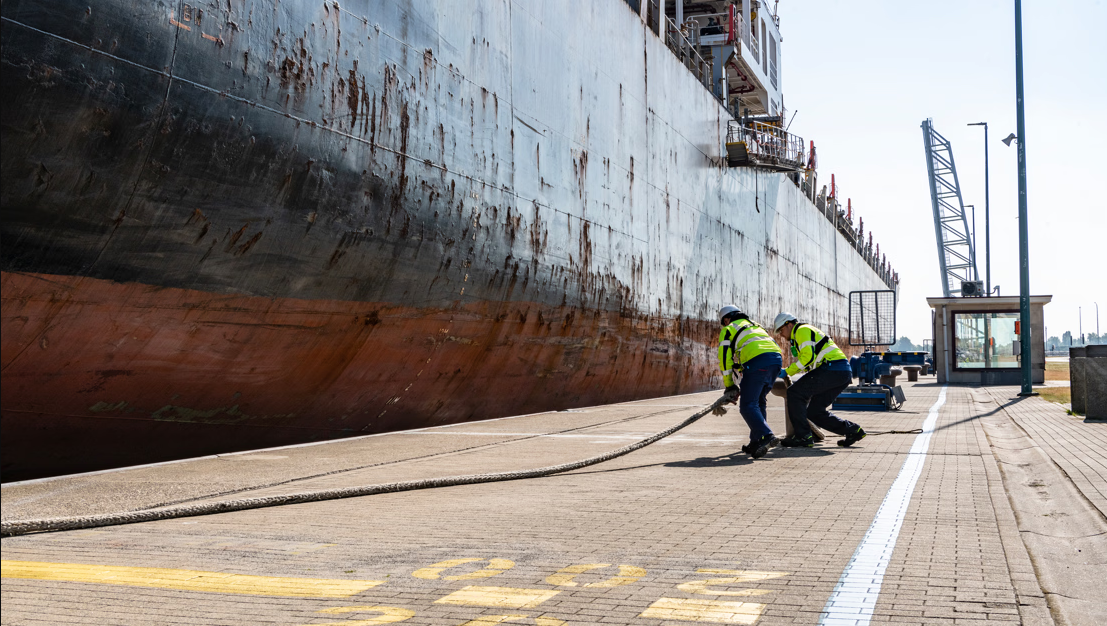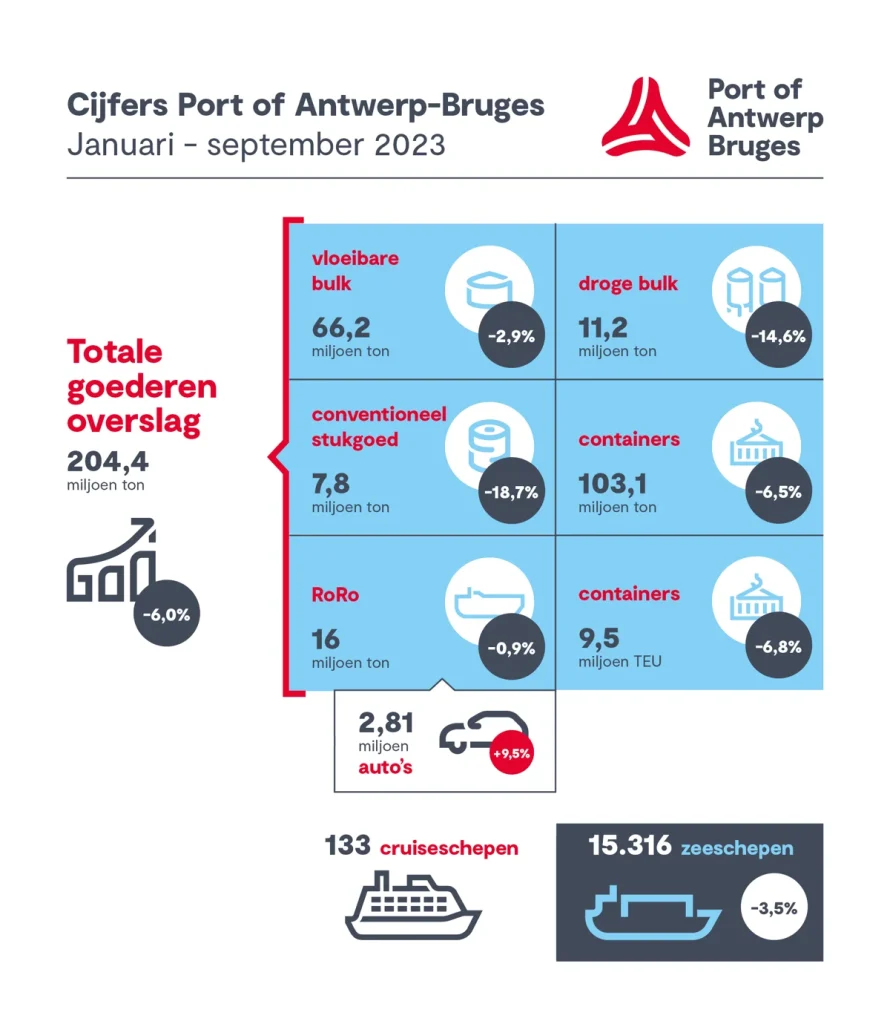
The Port of Antwerp-Bruges, a vital cog in the global maritime network, has weathered economic headwinds in the past quarter. With a total cargo throughput of 204.4 million tons over nine months, the port has seen a 6% dip compared to the same period last year. This downturn is a consequence of ongoing geopolitical and economic turbulence, leading to reduced demand in container shipping worldwide. However, amidst these challenges, the port’s container segment has managed to increase its market share in the Hamburg-Le Havre range, underscoring its robust international standing.
Container Market Holds Steady
The Eurozone’s economy is grappling with heightened interest rates, further compounded by global economic instability. These factors have contributed to a global decline in containerized trade flows. For Port of Antwerp-Bruges, this has translated to a 6.5% drop in container throughput by tonnage and a 6.8% decrease in Twenty-foot Equivalent Units (TEU) compared to the same period in 2022. Despite this, the port has managed to bolster its market share in the Hamburg-Le Havre range, climbing 1 percentage point to 30.6% in the first half of this year.
Conventional Breakbulk Resilience
Conventional breakbulk cargo has displayed remarkable resilience in the face of the challenging economic climate. Volumes have remained consistent with pre-pandemic levels, even as they dipped by 18.6% compared to the robust post-COVID period of 2022. Within this segment, steel, a pivotal commodity, has seen a 17.6% decrease due to reduced European steel production and lower demand.
Dry Bulk and Liquid Bulk Fluctuations
Dry bulk segment witnessed a 14.6% decline, with fertilizers, the largest product group, dropping by 24.2% over nine months. However, a promising upward trend in the latter half of the year is anticipated to continue into the final quarter.
In contrast, the liquid bulk segment experienced a 2.9% decrease. While the handling of liquid fuels surged by 8.7%, driven by a remarkable 42.7% uptick in diesel, other products like gasoline (-3.7%) and naphtha (-22.7%) saw declines. Additionally, LNG handling saw a 6.7% drop. Chemicals, despite an increase in offloading by 5.4%, faced an 18.3% reduction in inflow, resulting in an overall 11.5% dip in chemical handling.

RoRo Traffic and Cruise Industry
Roll-on/roll-off traffic has remained relatively stable, with only a marginal 0.9% change. The handling of transport vehicles surged by 8.9%, primarily fueled by a 12.6% increase in new car transfers, reaching a total of 2.67 million units. Furthermore, non-accompanied cargo on RoRo vessels, excluding containers, experienced a modest 1.4% drop. Notably, Ireland-related traffic saw an 18.5% boost, while traffic to and from the UK fell by 3.8%.
The cruise industry in Zeebrugge is poised for a record-breaking year, with 133 cruise ships and 351,000 passengers welcomed in the first nine months. Traditionally, autumn and winter months are busier for the cruise sector compared to the summer season.
Charting a Sustainable Course Forward
To solidify its position as a global maritime hub, the Port of Antwerp-Bruges is striving to accommodate even the largest container vessels with a required upstream depth of 16 meters. In a groundbreaking achievement in October, the MSC Tessa set a new depth record in Deurganckdok, significantly increasing the loading capacity of ships.
In its bid to achieve climate neutrality by 2050, the port is taking a leading role, working in tandem with industry players on diverse solutions and projects, including the import of hydrogen and CCUS (Carbon Capture, Usage & Storage). Additionally, a joint venture, Fluxys C-Grid, was launched in September to address the capture and transportation of CO2.
In the words of Jacques Vandermeiren, CEO Port of Antwerp-Bruges: “…2023 may not be a banner year, but our steady performance and market share gains in the Hamburg-Le Havre range reflect our resilience.”
Contributions from Annick De Ridder, Alderman of the City of Antwerp and Chair of the Board of Directors of Port of Antwerp-Bruges, and Dirk De fauw, Mayor of the City of Bruges and Vice-Chair of Port of Antwerp-Bruges: Highlight the strategic importance of the port and its commitment to sustainability.

